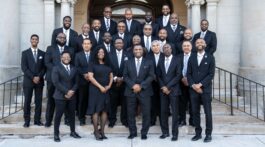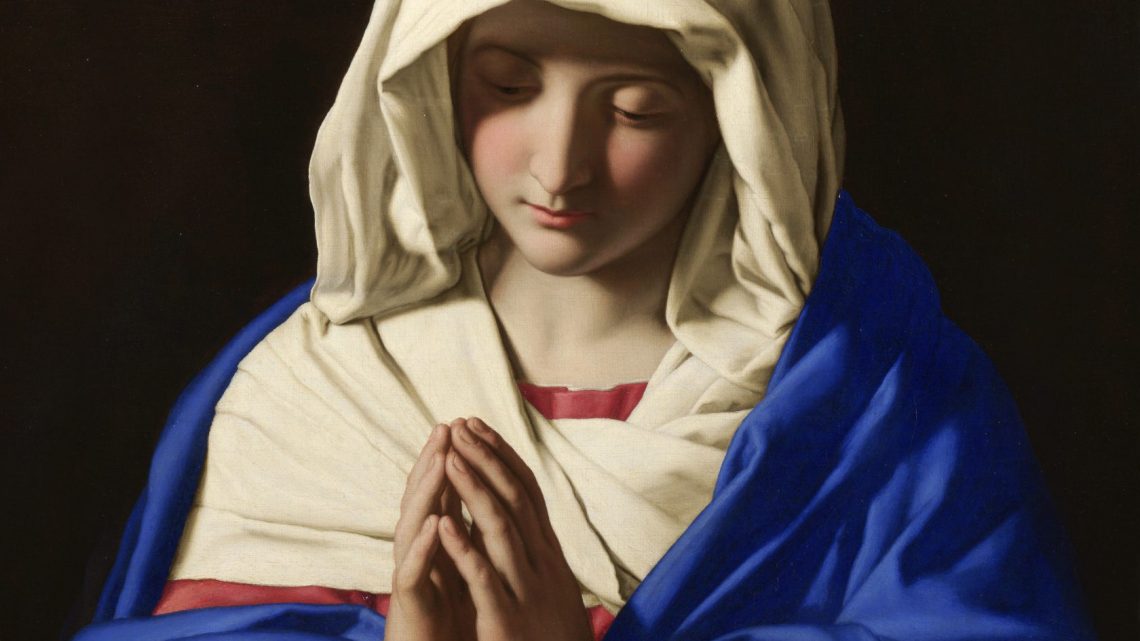Of all the Old Testament women whose stories we include, only two stories link to each other: Abigail, whom we have already looked at, and Bathsheba. Both are wives of David. Moreover, each of them is a crucial figure at the opposite ends of his reign. David encounters and weds Abigail before he becomes king. He marries Bathsheba while king, but more importantly, through the accession of Solomon, Bathsheba’s influence continues after his reign. Indeed, as we examine David’s interactions with these two women, we see how Bathsheba serves as a mirror to Abigail—in two very different ways.
| Abigail | Bathsheba-Early | Bathsheba-Late |
| Meets David before reign | Meets David during reign | Influences David at the end of his reign |
| Prevents him from killing a future subject and marring his reign | Is the reason he conspires to kill a valiant soldier, marring his reign | Prevents the assassination of Solomon |
| Inspires regal behavior | Inspires treacherous behavior | Ensures regal legacy |
As the table demonstrates, the early Bathsheba influences David—whether intentional or not—in the opposite way, while the late Bathsheba influences David in the same, positive way Abigail had. In saying that the early Bathsheba influenced David in a negative way does not indicate an evaluation of her personally, but rather the effect she had on his actions. As mentioned earlier, the narrative focuses on David almost exclusively, so we have no way of knowing whether she approved or disapproved of his actions. By contrast, she clearly participated in a positive way at the end of his life.
The important influence these two women wield in the reign of David, the most important of the Israelite monarchs, means their stories are forever linked with his, and with each other.
Finally, she had to be included because Matthew includes her in Jesus’ genealogy. And with the inclusion of her story, we can now examine why Matthew listed the four women he did.
We have already noted that all four of the women—Tamar, Rahab, Ruth, and Bathsheba—have questionable connections. So why highlight them in Jesus genealogy?
I believe there were two reasons: first, because of the fifth woman.
Jacob became the father of Joseph, the husband of Mary, from whom was born Jesus. . . . Matthew 1:16.
Both Matthew and Luke affirm that Mary conceived Jesus by the Holy Spirit, that she became pregnant before she married Joseph. Take this story out of the New Testament, and put it into everyday experience, and you get something like this. A young woman becomes pregnant before marriage; both she and her groom to be affirm that they had not yet had sex when this happened; girl claims infant is child of “Holy Spirit.” Let’s be honest. This looks like a tabloid headline story. “Girl claims God made her pregnant, not fiance.”
It is inevitable that questions about the child’s legitimacy—and Matthew makes it clear, these questions occurred to Joseph himself—would arise. Rumors might well follow the child his whole life. It is possible that John records the expression of such doubts in his gospel.
They said to him, “We were not born of sexual immorality. —John 8:41a.
Origen, an early church father, considered this to be an effort to discredit Jesus by alluding to rumors of Jesus being illegitimate. For some, especially some Jews, even a hint of scandal, an appearance of impropriety, would be enough to disqualify Jesus from being Messiah.
Matthew was a Jew, and he knew of this mindset. He had no doubts about Jesus birth, as his account demonstrates. But he wanted to break through the prejudice of those inclined to write Jesus off because of questions concerning his birth. And that’s what these other four women do. If they, with their questionable connections could be included as ancestors of Kings, then so could Mary. Even the worst interpretation of her pregnancy—that she conceived as a result of fornication—would not make her a prostitute, as Rahab was and Tamar pretended to be. She was not a gentile, as all but Bathsheba were. Nor had she committed adultery, as Bathsheba had.[1]
Again, Matthew believed that Mary conceived of the Holy Spirit. But his first concern was to establish that Jesus was Messiah, the King/Deliverer. Once people believed Jesus to be deliverer, they then might come to believe in the virgin birth. But first they might need to overcome questions about his mother’s reputation. The four women earlier in the genealogy clear that question decisively. God uses flawed human beings to accomplish his will.
Although Matthew wrote his gospel specifically for the Jews, he also realizes that Jesus came to deliver all mankind. And that, I believe, is the second reason for including the four questionable women. Three of them are gentiles, and the fourth was the wife of a gentile, Uriah the Hittite. If gentiles can be part of the lineage of the Messiah, then surely they can be recipients of his deliverance from sin, as well. Matthew ends, remember, with the gospel going into all the world. There are hints throughout his gospel that this will happen, beginning, I believe with the four women in the genealogy.
Bathsheba is the last of these four, a foundational figure in Israel’s history. Wife of David, mother of Solomon, the two greatest Kings of Israel. As mentioned earlier, very few seem able to counsel David. Samuel, while he lived, and Nathan. But at crucial junctures, he would listen only to Abigail, and now Bathsheba. God meets people where they are, and it’s no use speculating which one woman should have been David’s wife. Suffice it to say that Abigail and Bathsheba combined, at different times in David’s reign, to be the strong partner he desperately needed.
In many of the Psalms we see David’s strong emotions, emotions which led him to a deep relationship with God, but which also sometimes led him astray. Ironic, then, that it should be a woman—when women are commonly stereotyped as emotional—at crucial points in his life, who would aid him in making the sober-minded, sensible choice. Without Abigail, his reign might have begun under the cloud of his having killed all the men in a Israelite household. Without Bathsheba, David would not have been the David we know, there would have been first no Solomon, and later, no Solomon as King.
____________
[1] This may be confusing for us. Since Mary was not married, and she had no connection with a married man at the time of conception, technically the worst she could be accused of was fornication-sex outside of marriage.
Bathsheba, by contrast, was a married woman who had sex with man not her husband. That was adultery.










